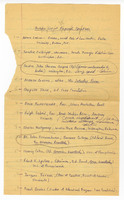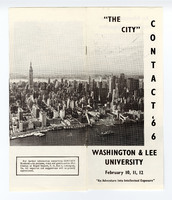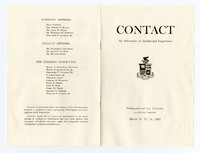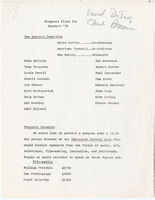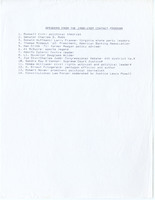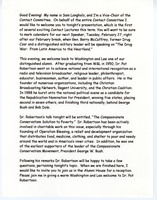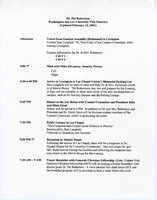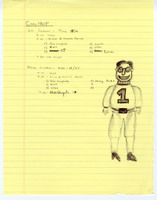The Creation of Contact Committee
In 1961, faculty and students invited Martin Luther King Jr. to speak on campus, which the Board of Trustees subsequently rejected, rescinding his invitation. This event remained an extremely contentious topic for years to come, as Martin Luther King Jr. came to be one of the most influential figures in American history with his “I Have a Dream” speech and passage of the Civil Rights Act of 1964. The lasting anger from MLK’s disinvitation then led to the creation of the Contact Committee in 1965 by the Interfraternity Council.
1965-1966: The First Contact Symposium
The Contact Committee was established and held its first Symposium Weekend in March of 1965 deemed as "An Intellectual Experience" for students bringing speakers around the shared theme of "The American Experience and Its Implications. This first symposium was "initiated and conducted by the Interfraternity Council, featured James Silver of the University of Mississippi and author of Mississippi: The Closed Society, New York Times columnist Tom Wicker, and W&L alumnus Francis Pickens Miller. Efforts to bring controversial speakers to campus continued to be handled gingerly” (Tradition and Transformation 255-256).
The 1965 symposium continued with the same goals of bringing a diverse group of speakers to campus, this time themed as "The City." The IFC and Contact's Steering Committee worked together to put together the event. The student's ideas for speakers for these early Conventions are visible in their handwritten notes, including MLK, whose name is crossed out.
1968-1974: Contact Committee Becomes Independent of IFC
The Contact Committee continued to succeed into the 1970's becoming independent from the IFC and bringing a variety of speakers. Fitting into the wider trends happening at the University that “through the classroom, clubs, organizations, and visiting lectures—and despite their conservative leanings and seeming absorption in social activities—W&L students stayed well aware of varied opinions, global events, and national politics" (Tradition and Transformation 294).
1988: Continued Success
After some years of controversy over Contact's internal operations the committee's success resumed with little troubles. Fourteen speakers came to campus including sports legend Al McGuire, Lt. Governor Douglass Widler, and Supreme Court Justice Sandra Day O'Connor.
2000-2001: Bigger Names and More Publicity
Contact began to draw even bigger names to campus, bringing more attention to its events. These speakers included well known conservative media personality Pat Robertson. Contact's potential speaker list for 2001 includes a variety of well known people from Donald Trump to Sally Ride, and includes prices over $100,000.
